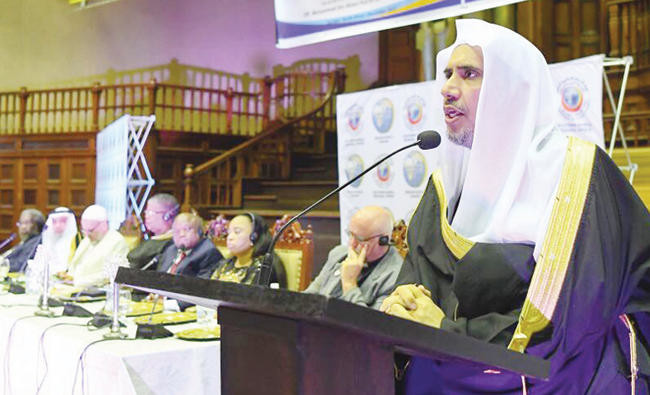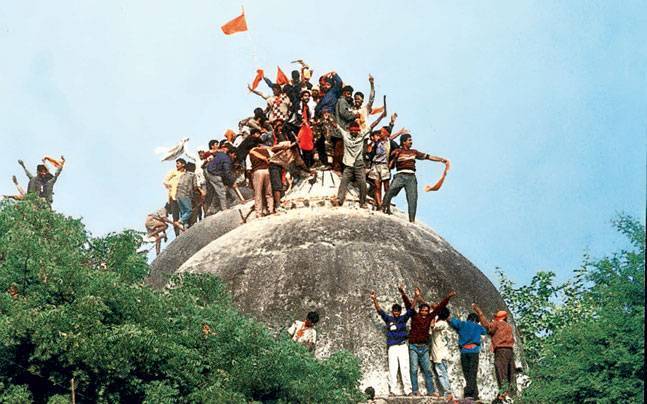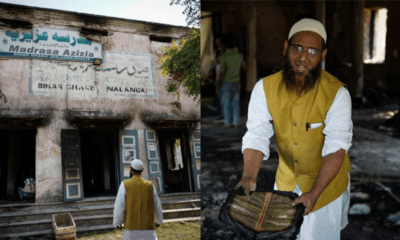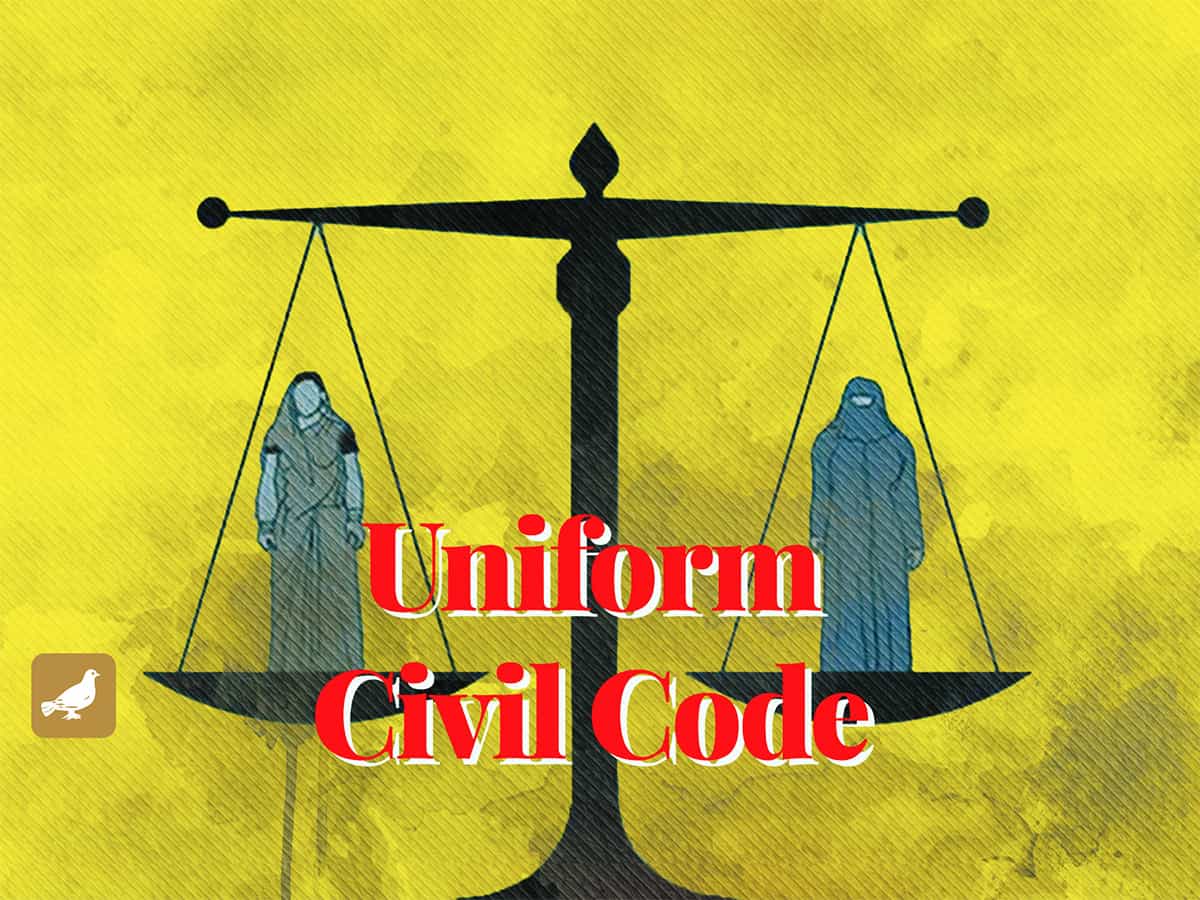Islam
Wouldn’t it be better to mind our own business? Here’s how you do it
Published
3 years agoon


The world would be a better place if people minded their own business. Isn’t that what Islam says too?
“I’M STARTING WITH THE MAN IN THE MIRROR.”
The more we grow up, the more we learn about the hardships and battles this world and its people bring. Every decision you make-the age you decide to get married at, the number of kids you choose to have, the job you choose to do, the clothes you choose to wear- every single thing you do for yourself and your satisfaction will always involve a person poking their nose in your actions.
Nobody thinks about looking at their reflection in the mirror before looking at someone else with judgmental eyes.
Before you planned to do something for yourself
Have you ever stopped wondering, “What would people say?”
Whenever you think of doing something, you’re overloaded with so many questions which involve the opinions of others.
Is it even necessary? It’s your life, and no one ever will live it for you, so why care what others would say? It’s not like they have to bear the consequences of your actions. You do something good, and you get its benefits. Likewise, you do something terrible, and so do you get its return. When people don’t mind their own business, it always causes many unnecessary rifts and confusion.
Prophet Muhammad (saw) clearly emphasized the dreadfulness of being a busybody:
“Most abominable in the sight of God is that you say what you do not do”- Quran, 61:2
So, I took some time to think, why don’t people ever focus their lives instead of making the lives of others miserable? Here are some things that I could gather.
A few pointers to understand why people don’t mind their own business –
INSECURITY
People who judge are mostly considered to be insecure about themselves. They find joy in complaining about things as it makes them feel superior to others, which allows them to hide their faults.
By doing this, they are only fooling themselves as degrading others according to set your standards doesn’t make you worthy of praise but improving and focusing on yourself does.
JUDGMENTAL BEHAVIOR
For some people, the habit of being judgmental just runs in their blood. They feel the need to include their opinions in everything and quickly jump to conclusions or be biased by listening to one side of the story or rumors. Even when their opinions are not called for.
NO SET GOALS
When you have goals in life, you wouldn’t be wasting time, poking your nose into others’ personal affairs. People who don’t mind their own business have no dreams they would want to achieve. They don’t have a proper motive in life and therefore don’t know what to do with it, so they find gossips and rumors to be surprisingly interesting and entertaining when bored.
ATTITTUDE
“I know everything,” attitude. People who don’t mind their own business think they know more and would do anything to let every Tom, Dick, and Harry in this world know that they have enough knowledge about whatever’s happening around them and that they are right.
Though I could have added more points, these would suffice to understand why people don’t let you live in peace. That said, here’s why Islam says to avoid making decision for others when not asked for.
Here are some reasons to mind your own business
MORE TIME
Time is the most valuable thing no one should ever waste. When you mind your own business and have a clear focus on yourself, you are not wasting time interfering in the lives of others and therefore will have plenty of time to improve yourself.
There are ONLY 24 hours in a day, and you can use this time to do anything other than minding others’ businesses.
You can make plans to achieve your goals, focus on improving your relationships with your family and friends, or even have a sound sleep that would at least refresh your soul and save you from sinning (did you know that sleeping the correct way is sunnah which means you get rewarded for doing something so easy? How beautiful is that?) Unlike when you cause problems and discomfort to another person by not minding your own business.
LEARN AND GROW
We only learn from our mistakes when we know the reason behind them. The more we learn about our weaknesses, the more we are likely to succeed and have better opportunities in life as we have more knowledge and experience.
However, if you don’t mind your own business, you won’t learn anything as you don’t face the consequences of an action another person makes. To grow, you got to face the consequences of your own activities, and that’s by minding your own business!
SET AN EXAMPLE
They say “sweep in front of your own door,” to help others and have them seek your advice, you must help yourself first. Solve your own problems, learn your own weak points, build and succeed in your own career and discipline your own kids.
If you are not stable yourself, how could you expect others to look up to you? If you have minded your own business, achieved stability in life, and have set an excellent example to others by doing so, you will be more equipped to help others and be worthy of a confidant.
Is minding your own business considered to be selfish?
No, not if you proceed to understand the crystal clear difference. Sometimes, minding your own business can be really helpful to others as they now have the freedom to make their own decisions and be confident in it. They also wouldn’t have to be afraid about the question –“what would people think?”
However, this only applies if that person is not in trouble and can support him/herself. Otherwise, you really need to stand up for that person, and that’s not a sin as it’s considered a help.
Like watching the ocean swallow down a drowning man and saying he’s just swimming, you can’t turn a blind eye to a man in trouble without lending a helping hand and just say you are “minding your own business.” Until you’ve gained proper practice, understanding the difference would be confusing, so to make it easier, you could ask yourself these simple questions before you interfere:
- Have I been requested for help in this situation, or am I just intruding?
- Will my involvement cause any unnecessary confusion or discomfort?
- What kind of difference would my opinion make in this situation?
Yes, minding your own business can be challenging as it involves facing your insecurities, fighting your jealousy, and practicing self-control. But once you learn its beauty, this world would be a compassionate place with successful people spending time wisely.
Nevertheless, if you don’t, there’ll come a time when you’ll look back and regret the times you wasted judging people (who minded their own business and are now content) instead of improving yourself.
You’d have no other choice but to drown in the storm where you could have glided through the waves.
You may like
-






Muhammed: The Greatest Man to walk on Earth
-




Muslim World League Chief’s Visit to India
-




The Appalling State of Muslims in post-colonial India
-




Muslim OBC Reservation scrapped by BJP government of Karnataka
-




Israel murders more innocent Palestinians including elderly worshipers at al-Aqsa mosque
-




Festival turns bloody after Hindutva Mob Burnt Centennial Mosque
Featured
Modi Bats for Uniform Civil Code in India
Published
1 year agoon
July 26, 2023By
Arif Jamal

The debate over Uniform Civil Code in India has reached its crescendo. India’s Prime Minister Narendra Modi set the ball rolling last month when he asked— “Can a country be run on two laws?” The question posed by Modi has started a debate in India.
What are Personal Laws?
India follows legal pluralism with different religious communities following their own personal laws. Personal laws include matters of inheritance, divorce, child custody and alimony. Personal laws have their origins in British colonialism. Various history scholars have argued that Personal Laws in India were introduced by the British in order to “divide and rule” Indians along religious lines. However, there are counterarguments also that contend that the British introduced Personal Laws to preserve the culture of different religious communities in the Indian subcontinent.
Even though Hindu Personal Laws have been codified and reformed starting in the 1950s, Muslim Personal Law has not been reformed over time.
It is pertinent to mention that the ruling Bharatiya Janata Party’s (BJP) ideological parent Rashtriya Swayamsevak Sangh (RSS) staunchly opposed the codification and the reformation of Hindu Personal Laws in the early 1950s.
However, now that the BJP is in power, the RSS is pushing for a Uniform Civil Code.
The BJP claims that Muslim Personal Laws are an aberration because of Congress’ Muslim appeasement. The party further alleges that the personal laws perpetuate gender inequality in the Muslim community.
Also Read: Gujrat Riots: Has Indian Democracy Breathed its Last?
Muslim Women Equality and Uniform Civil Code
The origin of the debate over Muslim women’s equality and the Uniform Civil Code goes back to the early 1980s.
The Mohd. Ahmad Khan vs. Shah Bano Begum & Ors. or the Shah Bano maintenance case is seen as a landmark case in India’s legal history that had significant implications for the rights of Muslim women in matters of divorce and maintenance. In 1978, a 62-year-old Muslim woman named Shah Bano sought maintenance from her husband, Mohammed Ahmed Khan, after he divorced her through Triple Talaq. Shah Bano’s husband refused to provide her maintenance, leaving her in a difficult financial situation. Shah Bano approached the courts seeking financial support from her husband under Section 125 of the Code of Criminal Procedure (CrPC), which provides for maintenance to be given to a wife by her husband if she is unable to maintain herself.
The case reached the Supreme Court of India in 1985. The court ruled in favour of Shah Bano, stating that she was entitled to maintenance from her husband even after the divorce. The judgment was significant because it recognized that Muslim women could claim maintenance under secular law rather than solely being governed by Muslim Personal Law. However, the verdict was met with strong opposition from conservative Muslim groups, who argued that the court’s interference in Muslim personal law violated their religious rights. The Congress-led Indian government, under pressure from various Muslim organizations, passed the Muslim Women (Protection of Rights on Divorce) Act in 1986. The act overturned the Supreme Court verdict in the Shah Bano case and limited the maintenance period for divorced Muslim women to the Iddat period as laid down by Shariah.
The Shah Bano case and the subsequent passage of the Act sparked debates and discussions about the rights of Muslim women in India and the tension between personal laws and the principles of gender equality enshrined in the Indian Constitution. The case remains a pivotal moment in the ongoing discussions surrounding the rights and status of women in the context of personal laws in India.
Also Read: The Appalling State of Muslims in post-colonial India
What is Uniform Civil Code?
A Uniform Civil Code will abolish all personal laws and govern all the citizens of India with a uniform law. The marriage, divorce, inheritance, child custody, alimony and maintenance will be uniform for all the citizens irrespective of their religion.
For Muslims, the opinion of religious scholars on the above-mentioned personal matters will no longer hold. The courts will decide these matters according to the secular laws of the country.
Also Read: Bulldozer (In)Justice and the Plight of Indian Muslims
Liberal Defence of Uniform Civil Code
Liberal intellectuals across India are defending the implementation of the Uniform Civil Code. They argue that personal laws have perpetuated gender inequality in various religious communities. Further, they also see Uniform Civil Code as a vehicle of progress for the religious communities.
Their arguments are based on the fact that the founding fathers of India’s Constitution did not conceive India as a federation of religions.
Concerns over Uniform Civil Code
Minorities, especially Muslims have raised genuine concerns about the implementation of the Uniform Civil Code in India.
First, the demand for Uniform Civil Code is coming from the BJP-led government. Muslims do not trust the BJP government. The BJP government is using gender inequality in the Muslim community to emphasise the importance of the Uniform Civil Code. However, if BJP’s historical record concerning Muslims is considered, one cannot trust that they are well-wishers of Muslim women.
Second, if the record of the previous nine years of BJP rule is analysed, Muslims have been pushed to the margins. While the BJP government in Karnataka banned Hijab in schools and colleges, it did not take similar action against the religious symbols of other religious communities. Similarly, there have been several incidents where BJP-led state governments took action against Muslims who offered prayers publicly, but the same state governments facilitated the public religious expression of the Hindu community.
Therefore, the Muslim community of India is facing a dilemma. While they are not against the implementation of the Uniform Civil Code but at the same time they fear that the Code will be an expression of Hindu majoritarianism.
Featured
Muslim World League Chief’s Visit to India
Published
1 year agoon
July 20, 2023By
Naira Mir

The recent visit of Sheikh Mohammed Bin Abdulkarim Al-Issa, Chief of the Muslim World League, to India holds significant importance in fostering interfaith dialogue, promoting peace, and countering extremism. Al-Issa’s condemnation of terrorist organizations, emphasis on the disassociation between Islam and extremism, and calls for unity and love amidst conflicts resonate with diverse communities. His visit to prominent religious sites, including the Akshardham temple and the Jama Masjid, further reinforces the significance of mutual respect, understanding, and cooperation among different faiths in the pursuit of global harmony.
Also, read Umar Khalid Completes 1000 Days in Jail Without Trail
Muslim World League’s Efforts for Peace and Countering Extremism
The Muslim World League, under Al-Issa’s leadership, has been actively engaged in countering extremist ideologies and promoting peace globally. Al-Issa’s visit to India provides an opportunity to reinforce their commitment to fostering dialogue, understanding, and cooperation among political and religious leaders, addressing critical issues related to countering extremism and promoting harmony within societies.
Read here, G20 Summit in J&K: China, Turkey, Egypt, Saudi Arabia opted out
Emphasizing Islam’s Rejection of Extremism
During his visit, Sheikh Mohammed Bin Abdulkarim Al-Issa made significant remarks emphasizing Islam’s rejection of extremism and its commitment to peace and harmony. He highlighted that extremist organizations do not represent Islam or any other religion, emphasizing their disconnection from religious teachings.
“Islam does not like double-speak and Muslims need to be truthful,” the Muslim World League secretary general said in his sermon delivered in Arabic.
Al-Issa emphasized the need to counter the distortion of the Islamic faith by terrorist organizations, emphasizing that Islam stands for peace, love, and harmony. He reiterated that the teachings of Islam promote compassion, tolerance, and respect for all humanity.
By underscoring the message that Islam has no place for extremism, Al-Issa aims to dispel misconceptions and bridge gaps between different religious communities. His statements seek to foster understanding, promote interfaith dialogue, and combat the spread of extremist ideologies that falsely claim religious justifications for violence.
Through his leadership in the Muslim World League, Al-Issa and the organization actively work to counter extremist ideologies and promote a peaceful interpretation of Islam. Their efforts include educational programs, interfaith initiatives, and ideological interventions aimed at fostering a culture of tolerance, coexistence, and peace.
Al-Issa’s emphasis on Islam’s rejection of extremism not only reaffirms the commitment of the Muslim World League but also serves as a powerful message to Muslims around the world. It reinforces the importance of understanding and living by the true principles of Islam while rejecting any form of violence or extremism.
In conclusion, Sheikh Mohammed Bin Abdulkarim Al-Issa’s emphasis on Islam’s rejection of extremism highlights the core values of peace, love, and harmony within the religion. His efforts to counter the distortion of Islamic teachings by extremist groups contribute to fostering interfaith dialogue, promoting understanding, and working towards a more peaceful and inclusive world.
Also, read The Appalling State of Muslims in post-colonial India
Interfaith Engagement at Akshardham Temple and Jama Masjid
Al-Issa’s visit to the Akshardham temple and Jama Masjid exemplifies his commitment to interfaith dialogue and fostering understanding among diverse religious communities.
At the Akshardham temple, Al-Issa not only admired the architecture and cultural heritage but also engaged with the Swamis to discuss matters related to global peace, harmony, and coexistence. This interaction provided a unique opportunity for an exchange of perspectives, fostering deeper understanding and mutual respect among different faith traditions.
Similarly, Al-Issa’s presence at the historic Jama Masjid during Friday prayers was a significant gesture of solidarity and outreach to the Muslim community in India. His participation in the prayers underscored the importance of unity and shared values across religious boundaries, reinforcing the need for peaceful coexistence and interfaith cooperation. Ahead of the prayer, Al-Issa met Ahmed Bukhari, Shahi Imam of Delhi’s Jama Masjid.
These interfaith engagements highlight the significance of dialogue, respect, and mutual learning in promoting peaceful relations among diverse religious communities. By engaging with leaders and communities of different faiths, Al-Issa aims to bridge gaps, dispel misconceptions, and foster harmonious relationships based on shared values of love, peace, and understanding.
These initiatives contribute to building trust and strengthening bonds among people from various religious backgrounds, paving the way for a more inclusive and tolerant society. They demonstrate the Muslim World League’s commitment to interfaith dialogue, promoting harmony, and working towards a peaceful coexistence where diverse religious communities can thrive together.
Read here, “The Kerela Story” Controversy in India
Efforts to Counter Extremism and Promote Peace
Sheikh Mohammed Bin Abdulkarim Al-Issa reiterated the Muslim World League’s dedication to countering extremism and promoting peace globally. Their initiatives focus on ideological interventions, countering hate narratives, and fostering dialogue to eliminate extremist ideas and foster a climate of harmony and understanding. Al-Issa’s visit to India serves as a platform to strengthen collaborations in countering extremism, promoting interfaith harmony, and advancing peacebuilding efforts.
Sheikh Mohammed Bin Abdulkarim Al-Issa’s visit to India as Chief of the Muslim World League carries significant implications for fostering interfaith dialogue, promoting peace, and countering extremism. His emphasis on Islam’s rejection of extremism, engagement with diverse religious sites, and commitment to countering extremist ideologies reflect the efforts of the Muslim World League in combating the distortion of religious teachings. Through dialogue, understanding, and concerted actions, Al-Issa and the Muslim World League strive to build bridges among different faiths and promote a climate of peace, love, and harmony in India and beyond.
However, Abdulkarim Al-Issa chose not to speak of the atrocities happening in India against the Muslim population nor did he speak of the Kashmir issue, and what people are calling a bloody silence disappointed many Muslims.
Also, read India Ranks 161st in Terms of Journalistic Freedom- RSF
Featured
The Appalling State of Muslims in post-colonial India
Published
1 year agoon
June 11, 2023By
Naira Mir

South Asia is home to one-third of the world’s Muslim population. Contrary to the popular belief there are more Muslims in South Asia than there are in middle-east which is popularly known to be the heart-land of Islam. After Indonesia, India is the second country in the world with the largest Muslim population. India is anciently known to be the hub of Hinduism, Buddhism and Jainism. So, when and how did a country largely consisting of Hindus, Buddhists and Jains become so densely populated by Muslims? How did Islam emerge in pre-colonial India? As much as there is a controversy around this inquisition, there is also a lack of historical, geographical and political awareness related to it. The most important aspect to this bone of contention is the appalling state of the Muslims in post-colonial India, and how is it different from that of the Muslim diasporas in the rest of the world, in specie the West. Albeit there have been events of religious violence in pre-colonial and British India, the post-colonial period has seen an enormous increase in riots and hate crimes against Muslims in India.
Also read, India Ranks 161st in Terms of Journalistic Freedom- RSF
The Image of Muslims in the West
The image of Muslims in the west has been in question lately more than ever in the world in general. The rise of hate crimes against Muslims usually chalk up to the 9/11 attack against the United States which was allegedly carried out by a religious extremist organization Al-Qa’ida. Having said that there have been some crucial conspiracy theories that called for a new investigation into the attacks, because they asserted that there was evidence of individuals from within the US government being either responsible for or knowingly having conspired in the attacks as a means for America of justifying the war in Afghanistan and Iraq. However, majority of the general public held the opinion that Al-Qai’da had orchestrated the attack. Because the members of the Al-Qai’da were people who proclaimed to be the adherents of the religion of Islam, this gave rise to a sense of bigotry and intolerance in the west towards the entire Muslim community.
The widely accepted notion among the broad commonality incriminated the Muslims of effectuating the attack. Non-Muslims started generalizing Muslims and started viewing them as people who endorsed terrorism, which led to a common prejudice against them in the western society. From their customs and religious practices, including their eating habits, to their appearance and clothing, Muslim men and Women were looked down upon and stereotyped as radical and fundamentalists. This generalization and stereotyping of Muslims gradually turned violent in nature and this turn of events gave rise to a series of hate crimes resulting in abuse and even unfortunate deaths of many Muslims. Howbeit, even before the 9/11 attack, many bookmen and laypeople alike had accepted a prior perception that religious terrorism had become the most common form of terrorism, particularly with regard to Islam. This suggests that Islamophobia was a common practice even before 2001.
Read here, “The Kerela Story” Controversy in India
Islamophobia before 9/11
People have associated Islamophobia with various manifestations. While some people reckon the phenomena with the increasing population of Muslims in the United States and Europe, others deem it to be retaliation for an ostensible anticipation of the emergence of a global Muslim identity. Yet many others identify Islamophobia with xenophobia and racism. Another less talked about reason for Islamophobia is the media’s double standards while reporting terrorism. A recent study has found out that terror attacks by “muslims” receive 357% more press attention. This was University of Alabama researcher’s newly study which was published in Justice Quarterly (academic journal covering criminology and criminal justice) authored by Dr. Erin Kearns, UA assistant professor of criminology and criminal justice. Still and all the causes of Islamophobia have always been and till date are debatable.
In the spate of attacks on Muslims in the western countries including the United States, United Kingdom, Canada, Switzerland and New Zealand, it should be noted that the occurrence of such deplorable crimes in the West have one regularity. They are all driven by Islamophobia, the impetus of which is the bigotry for Muslims, a sequence to the specious notion that Muslims endorse Terrorism.
Also, read Muslim OBC Reservation scrapped by BJP government of Karnataka
Appalling State of Muslims in post-colonial India- Partition
Talking about Islam and Muslims, then like in West the appalling state of Muslims is much the same in parts of South Asia explicitly in India, but for wholly different reasons. Though there have been incidents of religious violence in pre-colonial and British India, the history of modern India has seen a compelling surge in the estimate of both subjective and objective violence. But what accounts for this rise of violence against Muslims in independent India? Is it Islamophobia that drives this hatred, just like it does in the West.
Inasmuch these crimes are a result of anti-Muslim sentiments in both the West and in India, the causes of these crimes are primitively much different. Benchmarking the nature of these crimes and the disparity in the claims of the perpetrators, one finds out that there is significantly a historical aspect to the nature of violence against Muslims in India. The partition of British India into two different countries, now called India and Pakistan, was originally borne out of a religious divide amongst Hindus and Muslims. As history claims, different people were for and against partition, as each had a different vision in mind.
There are many theories that explain the reasons for the establishment of Pakistan. One of the most agreed upon consensus of the pro-partition leaders for the formation of Pakistan was the subject of safety of the Muslim minority in the otherwise Hindu majority India. The earlier incidents of religious violence in India had taken a toll on both the Hindus and Muslims. The Muslims being the minority were now more insecure about their safety while living amongst Hindus. Because the safety of Muslims had been in question, ultimately the demand for a separate country for Muslims by the pro-partition leaders was unanimously supported by most Muslims. The Muslims who were not able to migrate then to the land given to Pakistan were left in India, and thus were even less in number, making them an even smaller minority than before.
Read here, India- The Killing of Gangster-Turned-Politician Atiq Ahmad
Commencement of the Appalling State of Muslims in post-colonial India
What marked the commencement of the violence against Muslims in Independent India was the demolition of Babri Masjid, a 430 year old mosque in Ayodhya by extremist Hindus and members of Vishwa Hindu Parishad(VHP) and Bajrang Dal. What followed was a sequel of incidents feuled by the religious animosity stirred between Hindus and Muslims. There has been a continuing rise in the manifestation of hate crimes and incidents of religious prejudice against Muslims in India ever since. However, with the emergence of the current government in India, the last few years have seen an enormous and noticeable amount of hate driven crimes including rape, public flogging and lynching. The motives of the perpetrators for committing such heinous crimes are as bizarre as they are abominable. Concepts like cow vigilantism and theories like “Ghar Wapsi” have been doing rounds in the air and have accounted for most of these crimes if not all.
Also, read UN Defender Demands End to Crackdown on Kashmiri Activists
The idea of “Ghar Wapsi” in the appalling state of Muslims in post-colonial India
The idea of “Ghar Wapsi” has also been endorsed and publicized by the right-wing extremists in India, including the leaders of the current government. It is a concept that propagates religious conservation of non-hindus to Hinduism. The reason behind the ideology of these people is their belief that all the people living in pre-colonial and ancient India were originally Hindus. They believe that the emergence and presence of non-hindus in India is only because of the forced conversions by missionaries and invaders that came to India from outside, who were by and large Muslims. This ideology is linked to the pre-colonial past of India. It refers to the period when Islam first emerged in India in 711, when Mohammad Bin Qasim, who was a general in the Umayyad -empire conquered the area of the Southern Pakistan. This was the initial interaction of Islam with South Asia.
Afterwards in the 13th century, the Mongol Invasion uprooted a large number of Persian Turks from Iran and Central-Asia driving them to India where they settled in. And so gradually the tradition and practices of these people started to blend in the syncretic culture of India. Subsequently in the late 13th century with the establishment of the Empire of Timur, began the era of the rise Muslim rulers in India.
Later on in 1526, Babur, a direct descendant of Timur, founded the Mughal Empire, which then ruled almost all of the Indian subcontinent for more than 200 years. During the growth of the Mughal Empire under Babar’s son Akbar (1526-1605) there was an essential blending of Hindu-Muslim cultures. Akbar married a Hindu princess of a pure Hindu Rajput blood-line. This made Akbar’s son Jehangir half Rajput and half-Hindu. After Akbar, his son also married a Hindu woman, and therefore Jehangir’s son Shahjahan was three-quarters Rajput. With the rise of the Mughal Empire, biologically each successor of the dynasty became less and less Turkic and more and more Indian. They adapted the culture of India and also the Indian culture was insinuated by the Islamic traditions, resulting in the concoction of two separate cultures and religions.
Read here, Festival turns bloody after Hindutva Mob Burnt Centennial Mosque
Historic Bias as a reason for the Appalling State of Muslims in Post-Colonial India
These religious and cultural adaptations are, however, still seen as unethical and blameworthy by many Hindus in India, as they see Islam as a threat to their own culture and identity, as a foreign concept brought to India from outside. They consider the presence of Muslims in India as a result of the historic invasions and forceful conversions by Muslim outlanders and conquerors, and not the gradual amalgamation of two different cultures and religions over the course of time. Crimes like lunching and theories like “ghar wapsi” are not mere co-incidents but are borne out of such historic beliefs. They are a corollary of a historic hurt that these people carry. The violence in the west or bread out of islamophobia is sporadic in nature and often spontaneous while in India violence is structured. Unlike the west, the primeval and ever-growing intolerance towards the practices and culture of Muslims in modern day India is not because of the nature of these practices. On the contrary, in India Islam as a religion is not seen as much of a threat but Muslims are.
Also, read Dehumanizing Representation of Tribals and Muslims in the Oscar fame RRR
Trending
-



 Featured9 months ago
Featured9 months agoWorld passively watching as Israel perpetrates open-ended massacre in Gaza
-



 Featured10 months ago
Featured10 months agoIsrael is Hiding Crucial Demographic Facts About Palestinians
-



 Featured2 years ago
Featured2 years agoArgentina wins the World Cup; are there any other winners?
-



 Featured4 years ago
Featured4 years ago“Do Not Waste Water Even If You Were at a Running Stream” Prophet Muhammad
-



 Featured3 years ago
Featured3 years agoHistory of the Ottoman Empire
-





 Featured10 months ago
Featured10 months agoMuhammed: The Greatest Man to walk on Earth
-



 Featured2 years ago
Featured2 years agoChristian militia infiltrate Lebanon
-



 Featured4 years ago
Featured4 years agoFriendship is a Way For Jannah
